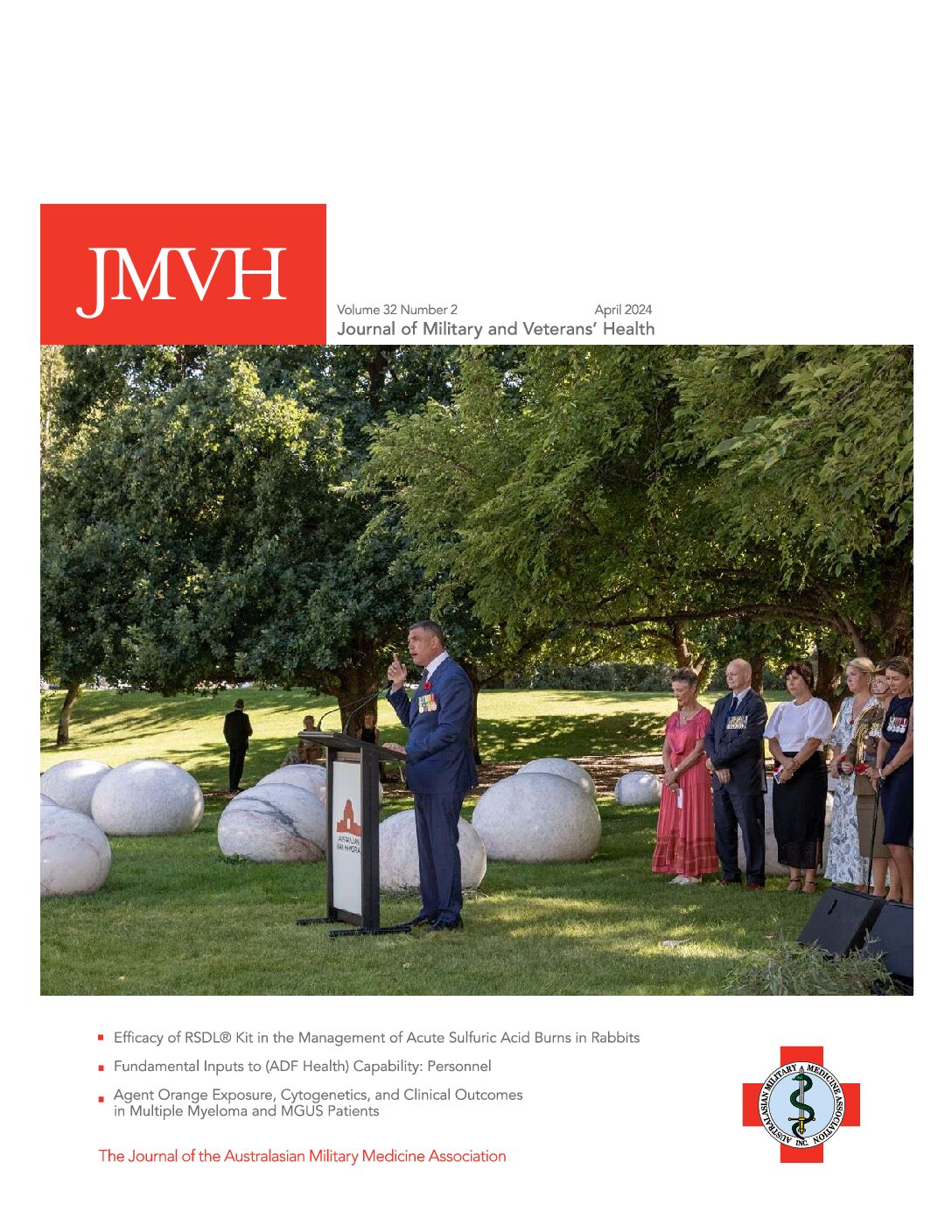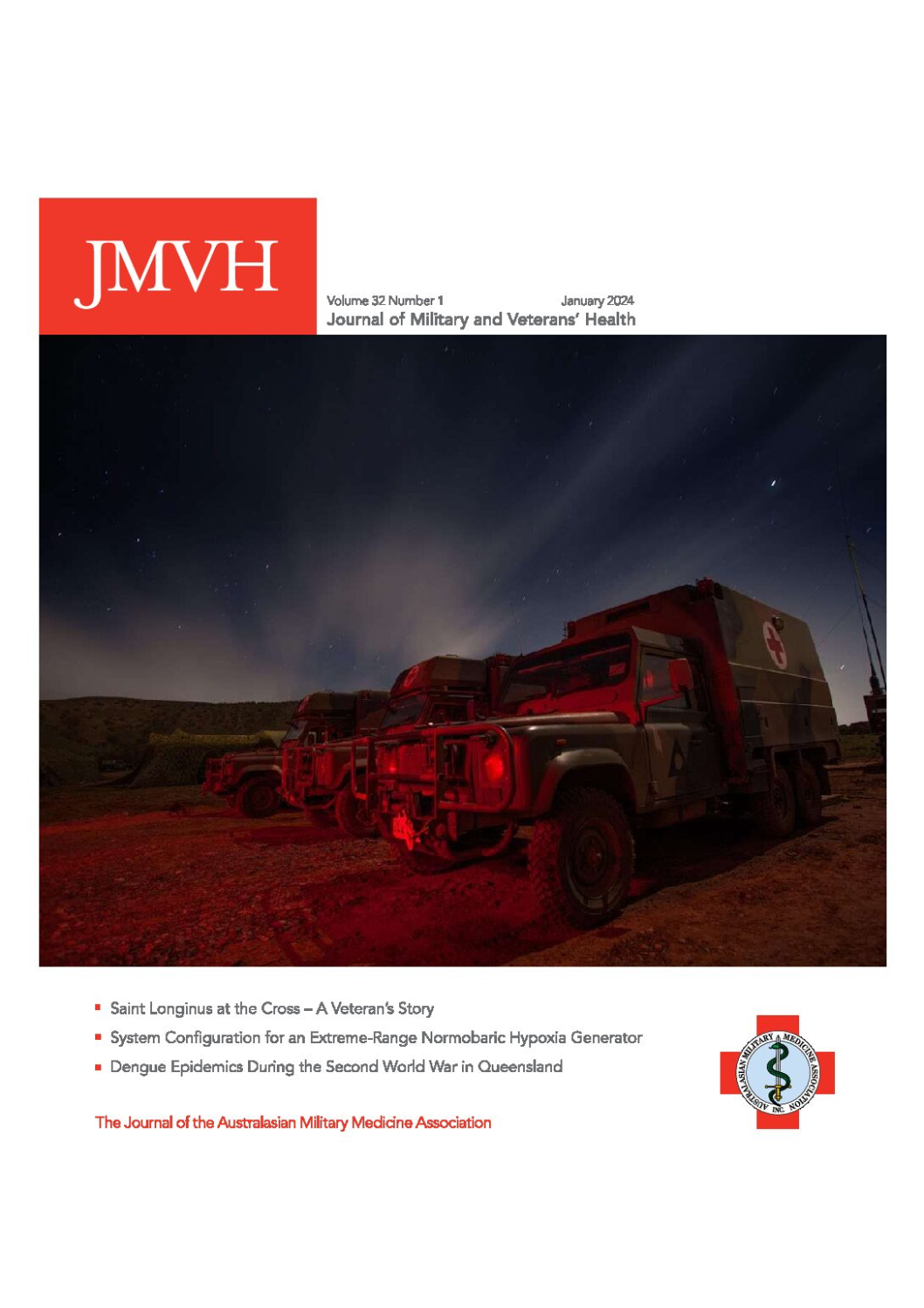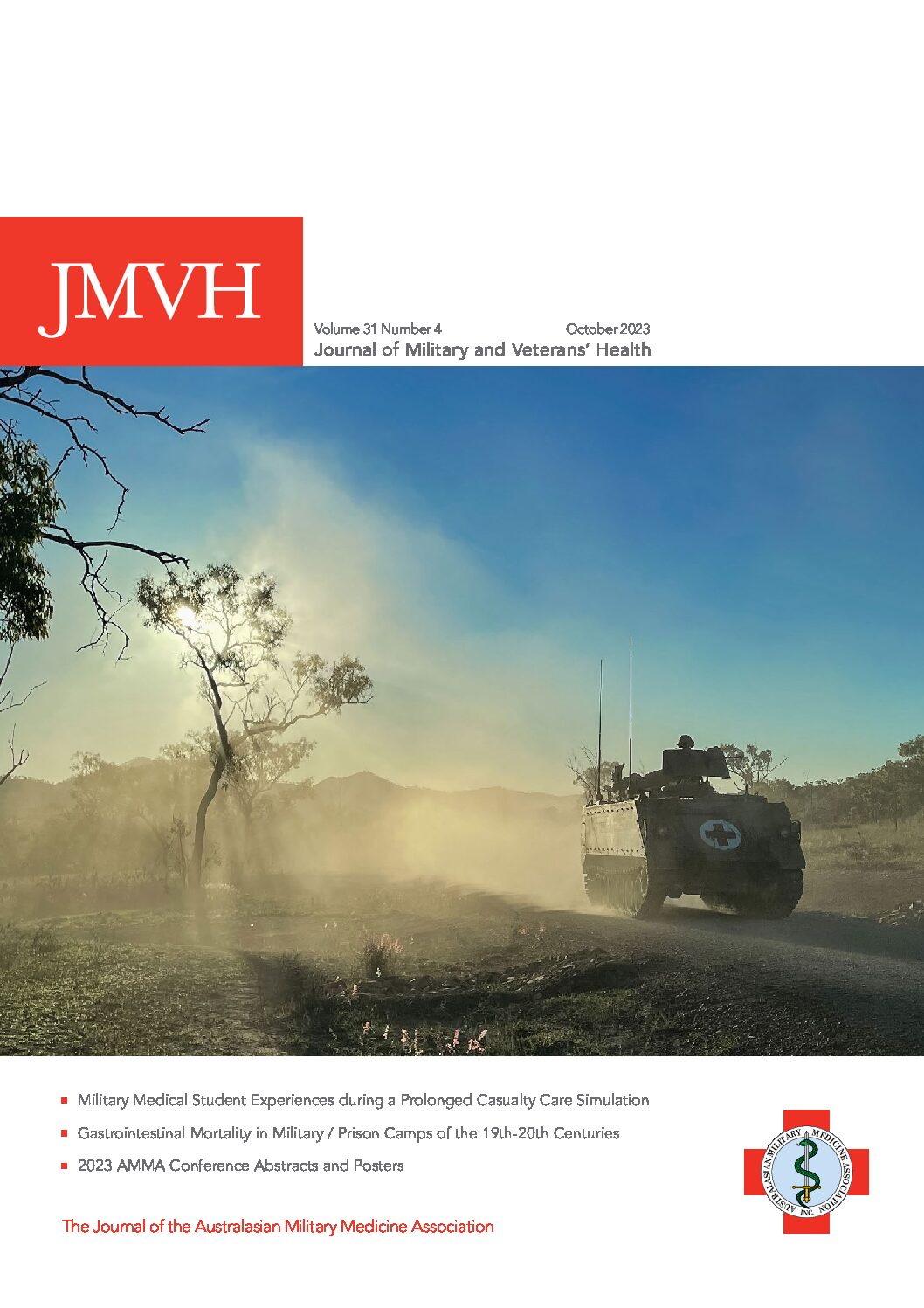To that end, a military medical journal has an important role in both encouraging medical research and passing on lessons learned in the military arena. Issues like the role of vaccines in military preparations. The use of oxygen in defence operations. and the unique threats posed by different weapons. including landmines. Should be of key interest to all. As we increasingly operate in a tri¬ service environment, supposedly Service-specific threats, like land mines, now effect us all. I encourage all our readers to stretch the envelope and prepare papers on the past present and future of military medicine. This is not, however, a journal for sedate articles on treating colds in kids but is a journal for addressing how we best prepare our personnel for treating children in peace-keeping operations; it is not for earaches but is for exploring the impact of ENT problems on diving and flying operations; and it is not for eczema but is for studying the vesicating effects on skin of mustard or T-2 toxin. The challenge to publish accordingly is there!
Sadly, we acknowledge the passing of a great Australian. Vivian Statham (nee Bullwinkel), through her bravery, courage, perseverance and compassion, upheld the proudest traditions of both nursing and military medicine. The Australian Military Medicine Association was honoured to have had Vivian Statham as one of its life members.
As I have promised in the last two issues, Australian Military Medicine continues to grow as a journal. From the positive feedback received. and the subsequent offers of papers. abstracts, book reviews, etc., I believe that we are starting to tap into that wealth of knowledge and information which I believe is in the Australian military medical community. This journal is again slightly larger than the previous journal and covers a wide range of articles which I believe will be of great interest to all military health practitioners. In this issue, I have created a new section, titled ‘A View from the Front’. To provide a forum for those articles which address some of the key issues of military medicine but which may not fit easily into either the original or review article sections.
Like the previous issue, there are a number of themes that run throughout this journal. Preventive health continues to be a key theme. Two excellent papers look at the psychological fitness of Navy personnel at sea and the management of Dengue in operational forces. The second theme is one of military medical practice. These papers cover topics as diverse as the surgical management of landmine injuries. The management of hypothermia, the use of oxygen in military operations and the management of concussion. The third theme is one of looking to the future. If we are to operate effectively, we must look critically at all aspects of our military medical operations. In this section, we look at proposed changes to the Naval Reserve Health Branch and the development of database information on Australian diseases and environmental conditions. The final theme is a historical one. Military pioneers in aviation medicine, and a continuation of the intriguing story of Australia’s naval involvement in the Boxer rebellion, tackle this theme.
We look forward to your continuing contributions and encourage you all to contact either Karen or me if you have any comments.






